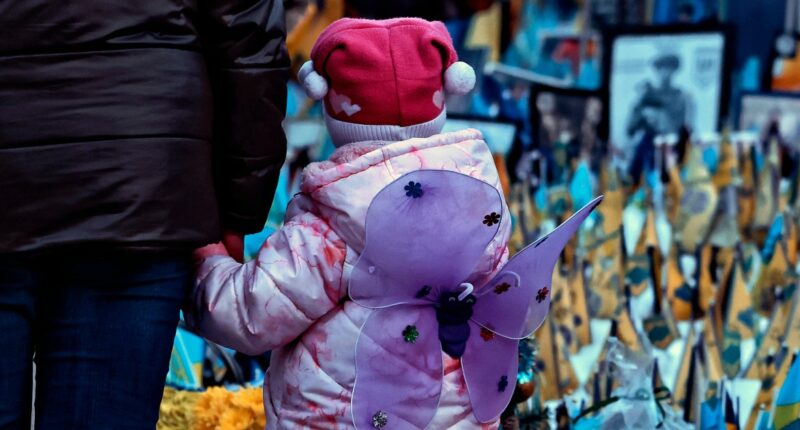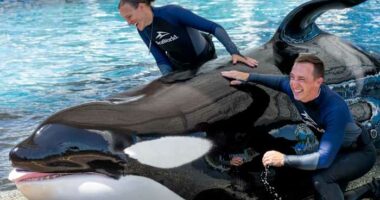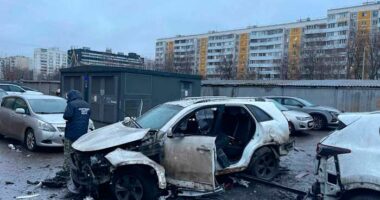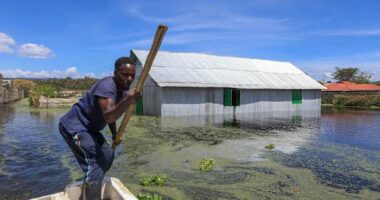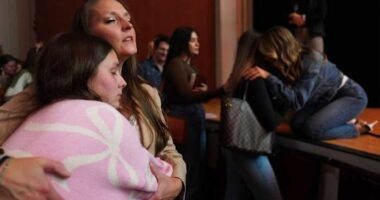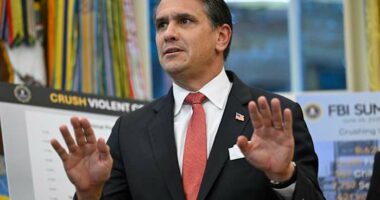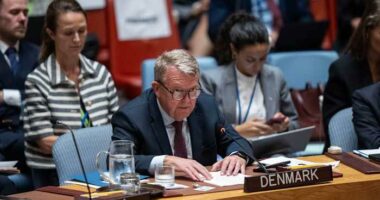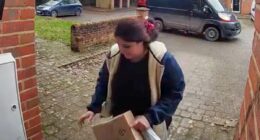Share this @internewscast.com
Research indicates that Ukrainian children have been relocated to more than 200 sites throughout Russia, including locations for enforced “re-education” and military training, which constitutes a breach of international law.
A report from the Yale School of Public Health Humanitarian Research Lab, released Tuesday, identified eight distinct types of establishments, such as summer camps, religious centers, and military schools spread across Russia.
The study was commissioned by Ukraine to gain insight into the network’s reach and aid in the efforts to ultimately bring the children back to their country, stated Nathaniel Raymond, the research lab’s executive director, during a phone interview on Sunday.
“It’s crucial for everyone working towards reuniting the children to have the most precise geospatial data available, and this report provides it,” he remarked.
The Yale report utilized open-source intelligence, media articles, Russian state documents, and satellite images to pinpoint 210 sites where children are held. While some are temporarily relocated, others receive Russian citizenship and are pressured into adoption, according to the report.
Many of these facilities indoctrinate children with “re-education” programs designed to foster Russian nationalism through activities like Russian history lessons and singing the national anthem.
Others, particularly older children, have received military training at cadet academies and a military base, including “drone control and tactics training,” and have participated in shooting and grenade-throwing competitions, according to the report.
The researchers said they cannot verify if any of the children given military training were ever conscripted into the Russian military or were otherwise deployed in the war in Ukraine.
Russia’s children’s rights commissioner, Maria Alekseyevna Lvova-Belova, and the country’s foreign ministry did not respond to requests for comment.
Ukraine’s official “Bring Kids Back” program, which partners the government with other countries and international organizations to return kids from Russia, has recorded nearly 20,000 cases of unlawful deportations and forced transfers of children.
The new report does not estimate the number of children who have been held either temporarily or indefinitely in Russia. But Raymond said identifying the locations gives a better sense of the scale, comparing it to the carnival game of trying to guess the number of jelly beans in a jar.
“Right now, with this report, we volumetrically know as much as we’re probably going to know how big the jar is, and the jar is gigantic,” he said.
The report builds on research that has helped support allegations of war crimes against Russian President Vladimir Putin issued by the International Criminal Court, which has issued an arrest warrant accusing him of overseeing the forced abductions and deportations. The ICC has also accused Lvova-Belova of committing similar crimes.
The Kremlin has previously denied the allegations and said the warrants were “outrageous.”
Ukraine has made the return of abducted children central to any talks with Russia to end the war. Ukrainian President Volodymyr Zelenskyy raised the issue with President Donald Trump during a meeting at the White House last month, days after Trump’s meeting with Putin in Alaska.
Last week, Zelenskyy announced plans to hold a “high-level event” on abducted children during the meeting of the U.N. General Assembly later this month.
The research was hampered after State Department funding for the Conflict Observatory program, which Yale was part of, was cut by executive order by Trump. It has not been restored. All of the data would have been lost, but a contractor working on the project in Florida protectively kept a backup, according to Raymond.
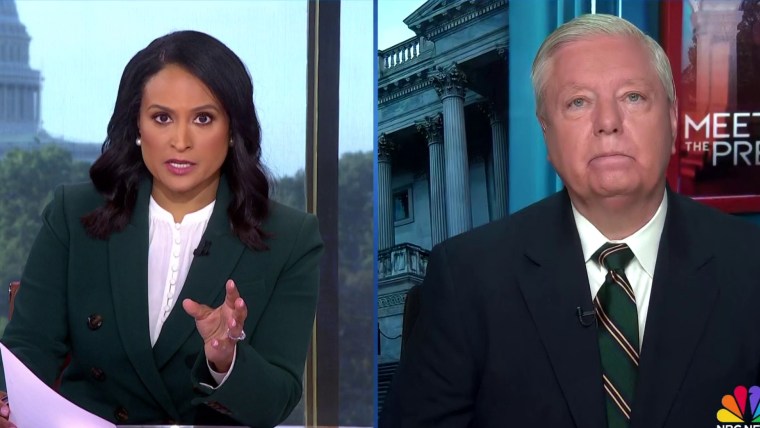
The lab’s repository of data has been transferred to Europol, a European law enforcement agency.
The researchers have also stopped directly sharing their findings with the ICC after the Trump administration-imposed sanctions on the court in February.
Previously, Raymond said, the lab had cooperated with the ICC on investigations of allegations of war crimes committed in Ukraine on the basis of an agreement put in place during the Biden administration.
Now, he said, researchers are operating under the assumption that the previous agreement is no longer valid. “We no longer believe that it is safe for us to attempt to share information with them, given the lack of clarity legally from the Trump administration,” he said.
However, a new bipartisan push in the Senate is underway to label Russia a state sponsor of terrorism unless it returns Ukrainian children taken during the war. Sens. Lindsey Graham, R-S.C.; Richard Blumenthal, D-Conn.; Amy Klobuchar, D-Minn.; and Katie Britt, R-Ala., introduced a bill last week threatening to add both Russia and Belarus to the list, which currently includes only Cuba, Iran, North Korea and Syria.
